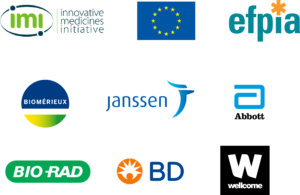WP1 successfully concluded a systematic review and meta-analysis to assess the diagnostic accuracy of point-of-care tests (POCTs) in community settings for lower community-acquired, acute respiratory tract infections (CA-ARTI). For this purpose, 11,326 articles were screened and 393 studies were finally analysed. Our results show that the accuracy of stand-alone signs and symptoms or biomarkers is really poor. Interestingly, lung ultrasound, which can be easily implemented with fast training in community settings, shows sensitivity and specificity (90% for both) for the diagnosis of bacterial pneumonia higher than chest-X-ray. Rapid antigen based diagnostic tests for influenza, respiratory syncytial virus, human metapneumovirus, SARS-CoV-2, and Streptococcus pneumoniae have sub-optimal sensitivity (range, 49% – 84%) but high specificity (>80%). As for the molecular test, their diagnostic performance is higher compared to that of rapid diagnostic tests for all the diagnostics and pathogen analysed. These results stratified by age and settings (emergency rooms versus long term care facilities versus community ambulatory) are currently under review for publication. Based on the evidence and applying a machine learning approach the team built clinical algorithms for children and adults assessed in different settings for determining the aetiology of CA-ARTI which is now under validation with real life big database including patients assessed outside the hospitals.
In addition, WP1 finalised the User Requirement Specification and the first version of the Technical Roadmap for diagnostic of CA-ARI which are currently under international experts and EFPIA assessment and review.
During the COVID-19 pandemic the team of University of Verona, Rambam Health Care Campus in Haifa and EFPIA contributed to the evidence of diagnostic for CA-ARTI with a systematic review on SARS-CoV-2. 51 studies including more than 10,000 patients show major limitations of molecular diagnostics in SARS-CoV-2 infection and that on average 10% of patients with coronavirus infections might be missed with PCR tests (CMI 2020). The WP1 team also developed, using a multi criteria decision analysis methodology, priority criteria to rapidly identify COVID-19 patients in need of hospitalization in low-resource settings with hospital-bed shortage (IJID 2020).



